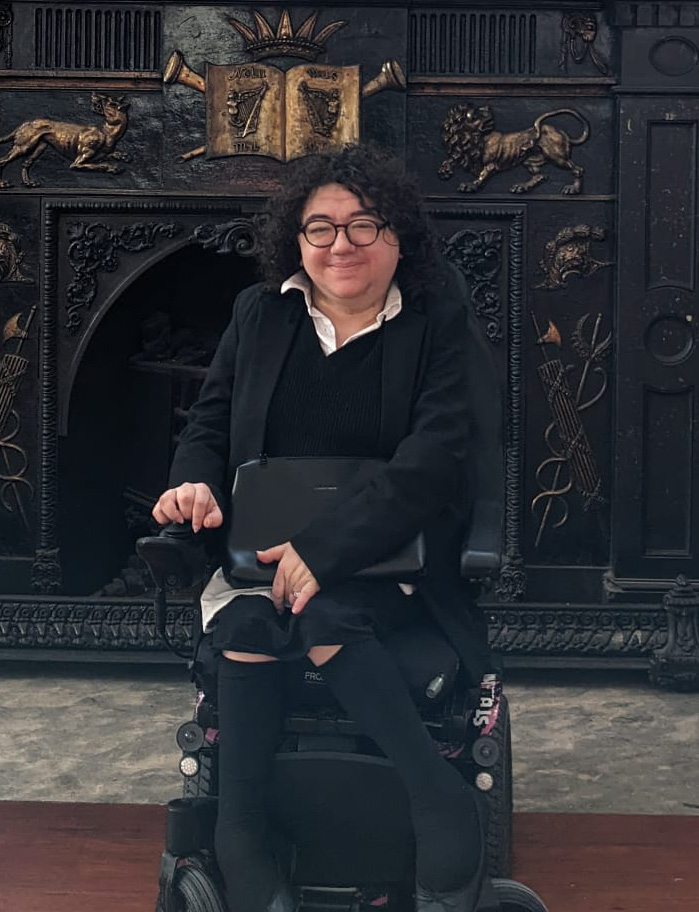Alannah Murray: A constitution in crisis – the rights of disabled children in education

Alannah Murray
Law student Alannah Murray criticises the State’s record on vindicating disabled children’s right to education.
The only positive obligation on the State is to provide free primary education, per the decision in TD v. Minister for Education, as outlined in Article 42.4 of the Constitution. It was reaffirmed by O’Hanlon J. in Donoghue v. Minister for Education.
The test for the appropriateness of education is contained in O’Shiel v. Minister for Education, with Laffoy J. stating:
“Even though the State must have regard to the constitutional guarantee of parental freedom of choice in framing (the scheme for the disbursement of public funding in the support of primary education), nonetheless it is proper for the State and, indeed, I would say incumbent on the State, to incorporate in the scheme measures to ensure that need and viability are properly assessed and that there is accountability.”
What happens when the State stops being held accountable for their failures towards disabled children?
It seems that every week the number of judicial reviews pursuant to the State’s failure to provide assessments of need, service statements or appropriate school places for disabled children grow — particularly those of autistic children.
This is an issue going back to the late ’90s. The Department of Finance has been raising eyebrows since the ‘Towards Equal Citizenship’ report, which sets out some of the accessible measures we know today, including special needs assistants (SNAs) in primary education.
Enshrining the legal right to services, the Department said, would “imply the underpinning by law of access to and provision of services for people with disabilities as a right” and would lead to “requests from other persons seeking access to health and other services without regard to the eventual cost of providing these services”. That related to the introduction of Statements of Need and the streamline of disability services.
Years later, we hear that the State has spent over €1.2m litigating Assessment of Need cases — no doubt that figure continues to climb as the Department and HSE settle more and more cases relating to the failure to meet the statutorily mandated timelines for completion as set out in the Disability Act.
Obviously, the litigation is against the HSE, but it has a knock-on effect on education as well; the main thread through all of it is a lack of State’s care for its disabled inhabitants. It is chronic underfunding, and it is having a detrimental effect on disabled children which will follow them into adulthood unless someone is willing to take accountability.
Minister Norma Foley, who oversees education, made a joint statement with Hildegarde Naughton, who is heading up special education and inclusion, announcing that teachers would now be obliged to aid in the Assessment of Need process — a move that has concerned teachers’ unions as well as disabled rights organisations.
It seems that the Constitution only applies to vindicating the rights of non-disabled students. Only non-disabled children truly have what is known as free education.
Parents are putting themselves under a massive personal and financial strain to support the needs of their children. Lengthy court battles just for a judge to say that their disabled child deserves an education on equal footing with their peers. Paying for private assessments because the State that is supposed to help them vindicate their child’s rights are turning against them and telling them if they want their child to be educated then they should take it to court.
The system for Assessments of Need and disabled students are further compounded by the lack of places suitable for disabled children. Whether it is special schools or special classes, parents are struggling to find places for their children.
So, what is the answer? Is it a review of the EPSEN Act? A call on government ministers to step aside? Truthfully, I don’t know. What I do know is, successive governments have neither made disabled students a priority, or an election issue. The vital work of organisations like FUSS (Families Unite for Services and Support) should not have to be done in a modern Ireland, a country that is the third richest in the world. What I do know is that there are 8,900 children without assessments of need, a figure that is likely already out of date.
The longer the government, HSE and National Council for Special Education (NCSE) spend pointing the finger and passing the parcel of educating disabled students, the more those students suffer.
The more the content of Articles 40.1, 42.1 and 42A.1 appears aspirational rather than prescriptive for disabled children and their families.
- Alannah Murray is a law student at the Honorable Society of King’s Inns and hopes to become a barrister specialising in disability law.










